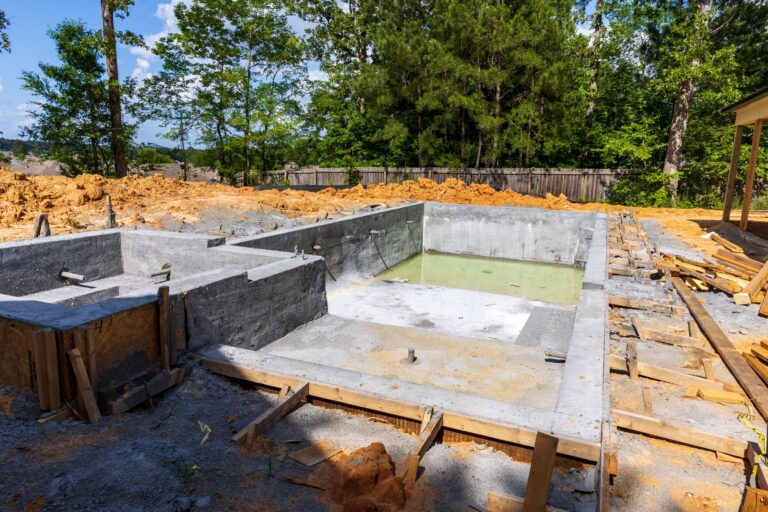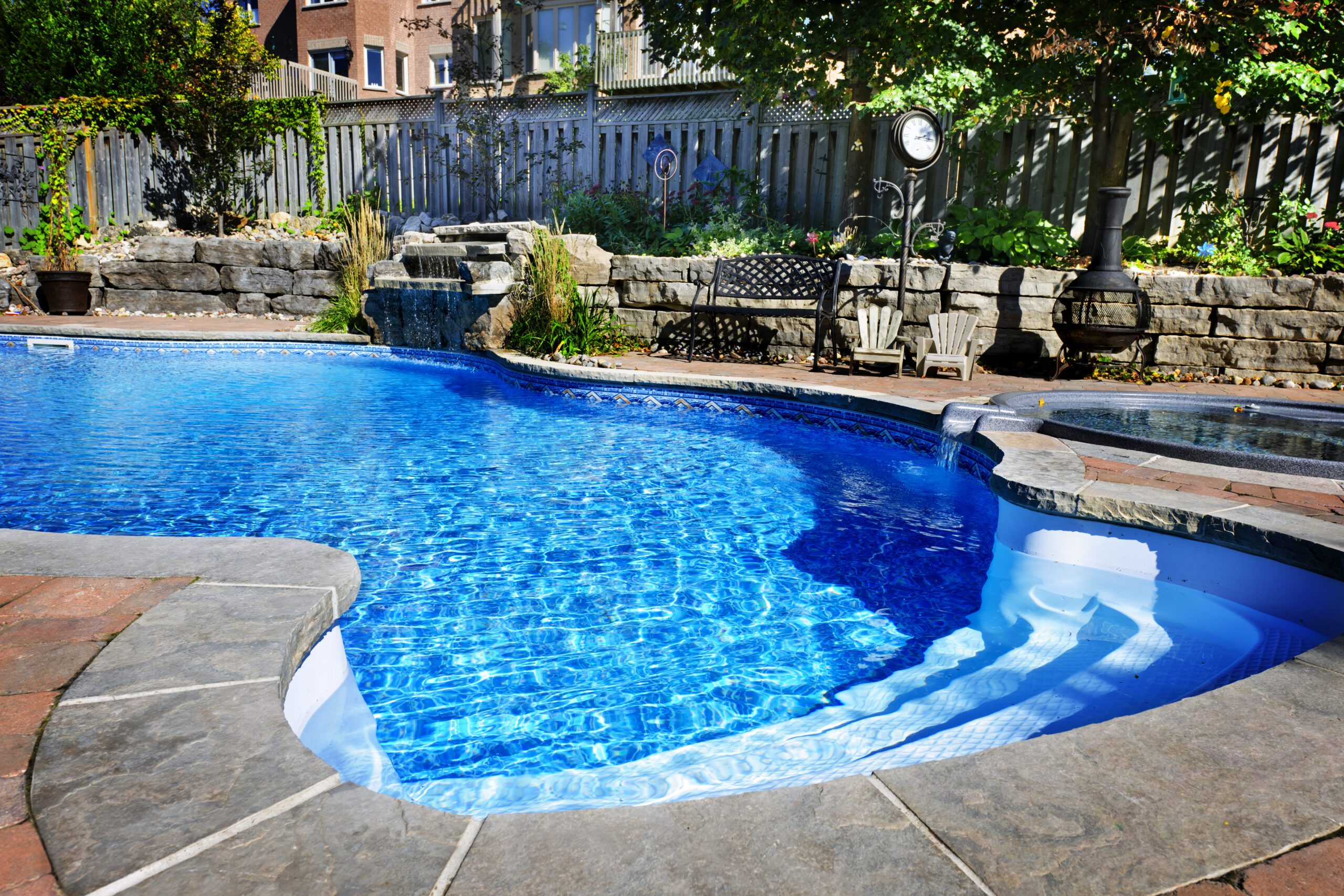Table of Contents
Introduction:
When it comes to choosing between saltwater pools and chlorine pools, determining which one is better and will add value to your home isn’t difficult if upfront costs aren’t the major factor in your decision making process (In my opinion). Saltwater pools are newer and better technology for a number of reasons we will discuss in this article. While there are some cons to a saltwater pool other than upfront costs, these are minor, and in my opinion, a saltwater pool wins this debate, so let’s “Dive in” and discuss… Sorry, couldn’t help myself.
How Saltwater Pools Work:
If you’ve read any of my posts, or the “About Us” section of Trustworthyhomeadvice.com, You may know that I’m an engineer. More specifically, my degree is in Chemical Engineering, so when my family asks me questions like “how does a saltwater pool work”, my answers tend to really annoy them. Maybe that’s why they don’t ask me questions like that anymore. Well anyway, you’re reading this post, so let me explain how saltwater pools work, and I’ll try not to annoy you with too much detail, hopefully.
Most people understand how traditional chlorine pools work, you add chlorine-based chemicals to the pool water to sanitize and disinfect it. The most common form of chlorine used is Calcium-Hypochlorite, which dissolves in the water, releasing hypochlorous acid (HOCl) and hypochlorite ions (OCl-) as active disinfectants.
Saltwater pools are quite different. Rather than manually adding chlorine chemicals, saltwater pools use a process called electrolysis to generate chlorine from salt. The process begins by adding salt (usually sodium chloride, NaCl) to the pool water. The salt dissolves, releasing sodium ions (Na+) and chloride ions (Cl-) into the water, creating a relatively weak saline solution. (Yes, this is the same as table salt, however, it’s uniodized, whereas table salt is usually iodized. If you use an iodized salt for a saltwater pool, the iodine will interfere with the electrolysis process, so don’t be tempted to get cases of table salt as a substitute).
The pool water then circulates through an electrolytic cell, a specialized device installed in the pool’s circulation system. The electrolytic cell contains two electrodes, typically coated with a noble metal such as titanium or ruthenium oxide. When an electric current is applied to the electrolytic cell, a chemical reaction occurs. At the anode (positive electrode), chloride ions (Cl-) are oxidized, releasing chlorine gas (Cl2) into the water.
The released chlorine gas dissolves in the water and reacts with the water molecules (H2O) to form hypochlorous acid (HOCl) and other chlorine-based compounds. These compounds act as effective sanitizers, disinfecting the pool water by killing bacteria, viruses, and other microorganisms.
Over time, the hypochlorous acid naturally breaks down, converting back into chloride ions (Cl-), which can then reenter the electrolytic cell to continue the cycle of chlorine generation.
The continuous process of electrolysis in saltwater pools ensures a steady and controlled supply of chlorine, eliminating the need for manual addition of chlorine chemicals. However, it’s important to regularly monitor the chlorine levels and maintain the electrolytic cell to ensure proper functioning and consistent chlorine production.
Ok, so I probably annoyed you with the engineering and chemistry lesson, but if your still reading, let’s do some comparisons of the two types of pools.
Pool Saltwater Vs Ocean Water:
The salinity levels of pool saltwater and ocean water differ significantly. Ocean water typically has an average salinity of around 35,000 parts per million (ppm). In contrast, the salinity levels in saltwater pools are considerably lower, typically ranging from 2,500 to 4,000 ppm. Simplistically stated, Ocean water is about 10 times more salty than saltwater pool water.
The lower salinity in saltwater pools is intentionally maintained to provide a more pleasant swimming experience. While ocean water can taste quite salty and may leave a noticeable residue on the skin, saltwater pools aim to strike a balance where the water feels comfortable and refreshing without being overwhelmingly salty.

The Pros and Cons:
Pros and Cons of Saltwater Pools:
Pros:
- Gentle Swimming Experience: Saltwater pools offer a gentler swimming experience with reduced skin and eye irritation compared to traditional chlorine pools.
- Softer Water Texture: The water in saltwater pools has a softer and silkier feel, enhancing comfort during swimming.
- Lower Maintenance Effort: Saltwater pools require less maintenance compared to traditional pools. The continuous chlorine generation eliminates the need for frequent manual chlorination.
- Potential Long-Term Cost Savings: While the initial installation cost of a saltwater pool may be higher, the decreased reliance on purchasing and adding chlorine chemicals can lead to significant savings over time.
- Pristine Water Clarity: Saltwater pools excel in water clarity due to the continuous and efficient chlorination process, minimizing the risk of algae growth.
Cons:
- Higher Initial Cost: Saltwater pools generally have a higher upfront cost due to the installation of the electrolytic cell and control system. While may factors influence this con, my research shows that saltwater pools can cost anywhere from 10% to 30% more for the upfront install.
- Potential Corrosion Risks: The higher salt levels in saltwater pools can lead to corrosion of pool materials and equipment. Regular inspection and maintenance are necessary to mitigate this risk.
- Electrolytic Cell Maintenance: The electrolytic cell requires periodic monitoring and maintenance to address scale buildup and ensure efficient chlorine production.
- Challenging Extreme Conditions: In regions with high temperatures or heavy pool usage, saltwater pools may face challenges meeting chlorine demands. Additional sanitization methods or shock treatments may be necessary in such cases.
Pros and Cons of Chlorine Pools:
Pros:
- Familiarity and Established Maintenance Routines: Chlorine pools have been the traditional choice for pool owners, with well-established maintenance routines and a wide range of available chemicals.
- Versatility in Chemical Options: Chlorine pools offer flexibility in choosing the type and form of chlorine used, allowing for customization based on pool needs and preferences.
- Precise Control Over Chemical Levels: Chlorine pools provide precise control over chlorine levels, allowing for adjustments to maintain optimal disinfection.
- Compatibility with Different Pool Materials: Chlorine is compatible with various pool materials, making it suitable for different types of pools.
Cons:
- Potential Skin and Eye Irritation: Chlorine pools, especially when chlorine levels are not properly balanced, can cause skin and eye irritation in some individuals.
- Regular Monitoring and Adjustment: Chlorine levels in the pool water need to be regularly monitored and adjusted to ensure proper disinfection, which requires ongoing attention.
- Cost Variability: The cost of chlorine chemicals can vary based on the type and quantity used, and it may require ongoing purchases to maintain adequate chlorine levels.
- Additional Treatments for Water Clarity: Maintaining water clarity in chlorine pools may require additional treatments such as shock treatments to prevent algae growth and ensure clear water.
It’s important to consider these pros and cons and weigh them against your specific needs, preferences, and budget when choosing between a saltwater pool and a chlorine pool. Consulting with pool professionals can provide valuable insights and help you make an informed decision.
However, my opinion is that the pros of a saltwater pool outweigh the cons, and the pros for a chlorine pool. We owned a traditional pool for many years in our prior home, and we enjoyed it. However, I was always tinkering with water chemistry and fighting algae. It took a few seasons to perfect my maintenance skills, but if we ever take the plunge again (sorry once more), I would opt for a saltwater pool!
Happy Swimming
John
If you have a question or a message for us, enter it here
Otherwise you can post a public comment below – Thanks for visiting



